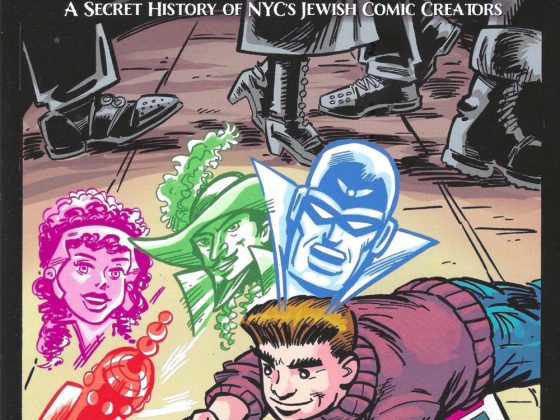One thing that worries me about the increasing trend of virtual offices is the learning process. In some fields, very specifically comics but I’m sure others as well, much of the learning is informal and osmotic. There’s some formal or structured training, to be sure, but equally important (more important?) is what you learn by observation.
When I came onto the DC staff in the early 1970s, the company had a very small (30-35 people?) but exceptionally talented staff augmented by another handful of freelance editorial people who came into the office on their own schedules, some daily, some weekly, some rarely.
The size of the place was such that everyone was in contact with everyone else, formally or informally, and it was natural to observe others at work. The full-time salaried editorial team was tiny: Julie Schwartz, Murray Boltinoff, Joe Orlando, one reprint/support editor, Nelson Bridwell, and one editorial assistant, Allan Asherman. Coming in and out idiosyncratically were Joe Kubert, Denny O’Neil, Archie Goodwin and Joe Simon. [If you’re counting, that’s six Hall of Famers—seven if count Carmine Infantino down the hall as President—which is why I sometimes have described this period of my life as the equivalent of being batboy for the Yankee’s Murderers’ Row.]
I worked directly for Joe, and later for Gerry Conway as well when he became one of the freelance editors, and learned enormous amounts of my craft from them. Some of it in the brief instructional ‘lectures,’ some by doing tasks like rewrite or copy editing which they would review, and much by simply observing their interactions with writers and artists. Broadly I’d characterize what I got from Joe as principally under the heading of tools to get the best work from writers and artists. From Gerry I got deeper tools for my own writing and reviewing the writing of others. [And not discounting that both of them played major roles in simply protecting my young self from own errors and teenage arrogance.]
But I also learned from the other people on the hallway. Julie Schwartz’s organizational tools and disciplines made the editorial process smooth, ensuring regular work for valued contributors and punctual production of isssues barring accommodation to the rarest of talents or situations. It wasn’t the specific tools [the equivalents of spreadsheets in modern terms] that I adopted as much as the attitudes and priorities.
And I learned what not to do, as well. Murray Boltinoff was an accomplished editor [his titles in any genre tended to sell better than other DC editors’ similar ones], and a decent man weighed down in those years by family challenges and his own frustrations with his career. But watching him deal with writers and artists was both a time tunnel into DC’s past when editorial emotional abuse of talent was commonplace, and an object lesson in behaviors I never wanted to model.
There were other observational lessons: watching how some editors treated their assistants less generously than Joe and Gerry had been with me [and there’s no possibility that I would have had my long career at DC if they hadn’t gone above and beyond customary practice to carry me through a valley during those years, for which I’ll always be grateful]; watching how different editors interacted with production or the freelance craftspeople doing lettering and coloring; and learning about the processes of comics from the extraordinarily experienced and skilled Sol Harrison and Jack Adler. Other small assignments from Carmine, Sol or VP-Business Manager Bernie Kashdan taught me things about copyright, scheduling, and dealing with Controller Arthur Gutowitz on inventory gave me insight into…well…the tricks editors used to game the system. Denny began years of writing advice. And freelancers coming in and out of the office taught lessons as well; Len Wein hovering over me proofing SWAMP THING together, for example. I’m not confident that I’d have had the chance to learn any of those things in a virtual structure; much less watch artists working in the bullpen finishing up or correcting assignments, or gabbing with writers of my generation or predecessors back to legends like Alfie Bester.
Every moment has its own opportunities and challenges, and I’m sure the virtues of the emerging virtual systems will create their own. But I feel very lucky in how I got to learn, and I hope it works out as well for this generation’s beginners.
